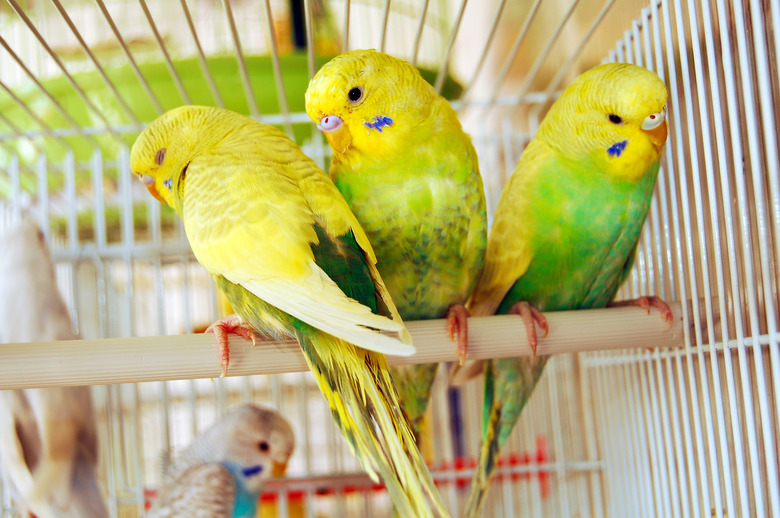How To Stop Birds From Chirping All Night Long
Whether dealing with pet or wild birds, all-night chirping can drive you crazy. Constant night chirping generally occurs in wild birds due to the species' mating season and usually does not last more than a few weeks. While such problems are mainly temporary, prevent sleep loss during this time by using assorted bird deterrents and repellents as well as methods for blocking out noise, such as sleeping with the radio on. Pet birds may chirp due to stress over a new environment, for attention or because some bird species naturally call to other birds in the morning and at dusk, though talking to them will usually quiet them.
Wild Birds
Step 1
Spray lightly at the birds with a hose so they fly off.
Step 2
Use products designed for bird control. Install bird deterrents, such as bird wire, slopes and "spiders," which prevent birds from landing, nesting and roosting on buildings and other surfaces. Bird spiders are pieces with stainless steel, movable arms that keep birds from landing.
Step 3
Apply bird repellent to areas where pest birds are known to land. Use liquid, non-toxic bird repellent that will not harm the birds or you. Spread the liquid on affected areas to create a tacky surface that prevents birds from landing.
Step 4
Place a fan in your room to muffle the sounds of chirping birds. Other options include playing relaxation CDs/digital recordings or leaving a radio on. Also wear earplugs or move to another section of the house to sleep.
Pet Birds
Step 1
Place a dark blanket or towel over the bird's cage. Make sure it is made of cotton or other breathable material and leave some space open for air flow. Most birds will become quiet instantly when the cage is covered.
Step 2
Place the cage in a quiet room and turn the lights off to quiet the bird. Speak to the bird in low tones to quiet it if it continues to squawk.
Step 3
Train the bird to stop squawking. Turn a light or fan on the bird for a few seconds when it squawks. The light or air will startle the bird into quietness. Turn off the device and wait 60 seconds. If the bird is still quiet, give it some attention and perhaps a treat. If it is quiet for another 60 seconds, give it more attention or take it out of its cage. The reward system will train it to stop squawking.
Things Needed
- Water and hose
- Bird deterrent
- Bird repellent
- Fan or radio
- Ear plugs
TL;DR (Too Long; Didn't Read)
Your local animal shelter or control center can help you figure out what kind of birds you are dealing with and how best to deter them. Set live traps if birds become a serious problem and call your local animal control center to remove them. Try sound deterrents featuring predator calls to keep birds away. Avoid using tactics that will harm the birds, such as throwing rocks or firing pellet guns. Say "Quiet!" to a pet bird in a gruff tone to quiet it. If it is silent for 10 or more seconds, speak to it in soothing tones.
Cite This Article
MLA
McGroarty, Kent Page. "How To Stop Birds From Chirping All Night Long" sciencing.com, https://www.sciencing.com/stop-birds-chirping-night-long-8367653/. 13 March 2018.
APA
McGroarty, Kent Page. (2018, March 13). How To Stop Birds From Chirping All Night Long. sciencing.com. Retrieved from https://www.sciencing.com/stop-birds-chirping-night-long-8367653/
Chicago
McGroarty, Kent Page. How To Stop Birds From Chirping All Night Long last modified August 30, 2022. https://www.sciencing.com/stop-birds-chirping-night-long-8367653/
